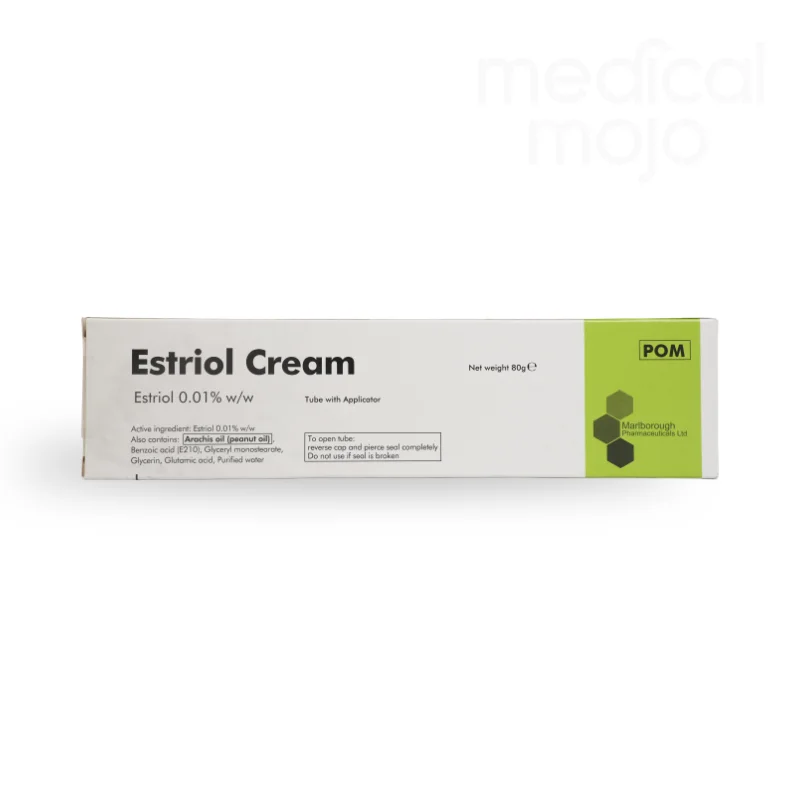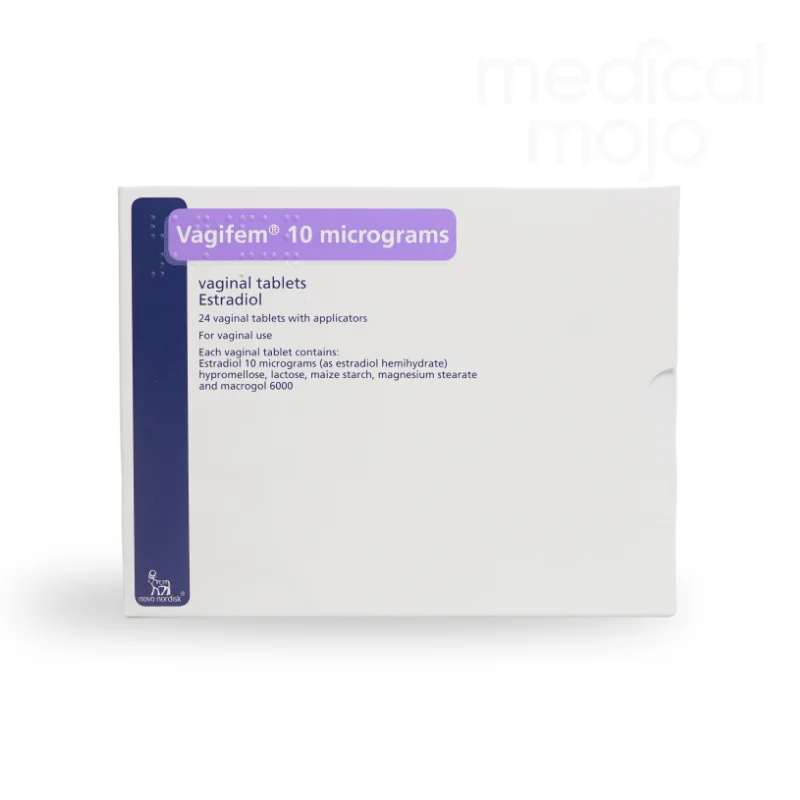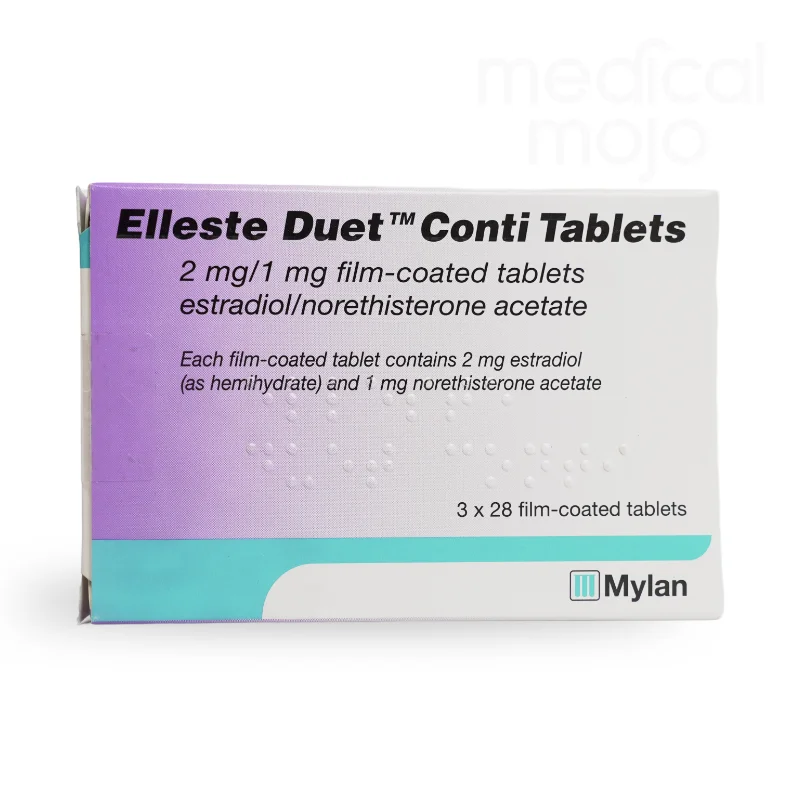HRT
Hormones got you hot and bothered? Get effective treatment for your menopausal symptoms
Patches, tablets, and gels. Our range of prescription strength HRT gives you the flexibility to choose the solution that is right for you.
One-to-one coaching to help you navigate the storm of menopausal hormonal disruption.
Find the right HRT treatment for you
View All ProductsWhat you should know about HRT or Hormone Replacement Therapy
Hormone Replacement Therapy (HRT) is a treatment used to relieve symptoms of menopause by replenishing the body’s levels of estrogen and progesterone, which decrease during menopause.
HRT can help alleviate symptoms of menopause such as hot flashes, night sweats, mood swings, vaginal dryness, and decreased bone density. It can also reduce the risk of osteoporosis.
HRT has been associated with an increased risk of breast cancer, blood clots, stroke, and heart disease, particularly when used for long periods. The risks can vary depending on the type and duration of HRT.
HRT is not recommended for women who have a history of breast cancer, blood clots, heart disease, or untreated high blood pressure. It’s important to consult with a healthcare provider to determine if HRT is safe for you.
The duration of HRT use varies depending on individual needs and risk factors. Generally, HRT is used at the lowest effective dose for the shortest time necessary. Regular check-ups with your doctor will help determine the appropriate duration.
Yes, HRT can help prevent bone loss and reduce the risk of osteoporosis, particularly in women who start HRT around the time of menopause.
HRT can be administered in various forms, including tablets, patches, gels, creams, and vaginal rings. The type of HRT that is best for you will depend on your symptoms, medical history, and preferences.
While HRT is effective for many women, it’s not suitable for everyone. Women with certain medical conditions, such as a history of breast cancer or blood clots, may need to avoid HRT or consider alternative treatments. A consultation with a UK-registered prescriber can help you determine the best course of action.
Additional information
What is HRT (Hormone Replacement Therapy)?
Hormone Replacement Therapy (HRT) is a treatment used to alleviate symptoms associated with menopause by replacing hormones that the body no longer produces in sufficient amounts. As women approach menopause, the levels of estrogen and progesterone in their bodies naturally decline, leading to a range of symptoms that can significantly impact quality of life. HRT works by replenishing these hormones, helping to manage symptoms such as hot flashes, night sweats, mood swings, and vaginal dryness. It can also help reduce the risk of osteoporosis and other long-term health issues associated with menopause.
What causes the need for HRT?
The need for HRT typically arises during menopause, a natural biological process that marks the end of a woman’s reproductive years. Menopause usually occurs between the ages of 45 and 55, but it can happen earlier due to surgery (such as hysterectomy), certain medical treatments, or as a result of premature ovarian insufficiency. The symptoms of menopause are primarily caused by the reduction in estrogen and progesterone production, leading to the various physical and emotional changes that women experience during this time.
What are the symptoms of menopause?
Menopause can cause a wide range of symptoms, varying in severity from woman to woman. Some of the most common symptoms that HRT can help alleviate include:
- Hot flashes: Sudden feelings of heat that spread across the body, often accompanied by sweating and redness.
- Night sweats: Excessive sweating during sleep, which can lead to disturbed sleep patterns and fatigue.
- Vaginal dryness: Reduced lubrication that can cause discomfort during sexual activity and increase the risk of urinary tract infections.
- Mood swings: Emotional fluctuations, including feelings of anxiety, irritability, and depression.
- Sleep disturbances: Difficulty falling or staying asleep, often linked to night sweats or anxiety.
- Decreased libido: A reduction in sexual desire, which can affect intimate relationships.
- Bone density loss: An increased risk of osteoporosis, leading to fragile bones and a higher likelihood of fractures.
How to treat menopausal symptoms with HRT
HRT is one of the most effective treatments for managing menopausal symptoms. The therapy can be tailored to each individual’s needs and is available in several forms, including:
- Estrogen-only HRT: Recommended for women who have had a hysterectomy, this type of HRT involves taking estrogen alone.
- Combined HRT: This therapy includes both estrogen and progesterone, and it is typically prescribed for women who still have their uterus to prevent the risk of endometrial cancer associated with estrogen-only HRT.
- Sequential HRT: Involves taking estrogen every day and adding progesterone for 14 days of each month. It is suitable for women who are still experiencing periods.
- Continuous combined HRT: Involves taking estrogen and progesterone every day without a break, usually recommended for post-menopausal women.
- Topical HRT: Includes patches, gels, and creams applied to the skin, delivering hormones directly into the bloodstream.
- Vaginal HRT: Creams, rings, or tablets specifically designed to treat vaginal dryness and urinary symptoms.
HRT: Medical history and regular check-ups
Hormone Replacement Therapy (HRT) carries certain risks, which should be carefully considered when deciding whether to start or continue treatment. If you experience premature menopause due to ovarian failure or surgery, the risks associated with HRT may differ, and it’s crucial to discuss these with your doctor. Alongside its benefits, HRT has some associated risks, especially in relation to cancer, cardiovascular health, and blood clotting.
HRT and cancer
Endometrial hyperplasia and cancer:
Taking estrogen-only HRT can increase the risk of excessive thickening of the womb lining (endometrial hyperplasia) and subsequently, endometrial cancer. The addition of a progestogen to estrogen in HRT substantially reduces this risk.
- Risk statistics: For women aged 50 to 65 who have a womb, 5 in 1000 not taking HRT will develop endometrial cancer. However, in women taking estrogen-only HRT, this risk increases to between 10 and 60 in 1000, depending on dosage and duration of use. Adding progestogen significantly lowers this risk.
Breast Cancer:
Evidence suggests that both combined estrogen-progestogen and estrogen-only HRT can increase the risk of breast cancer, with the risk becoming evident within three years of use. After stopping HRT, the risk diminishes but can persist for over a decade if HRT was used for more than five years.
- Risk Statistics: Among women aged 50 to 54 who do not use HRT, 13 to 17 in 1000 will be diagnosed with breast cancer over five years. For those taking estrogen-only HRT, this increases to 16-17 per 1000, and for combined HRT, the figure rises to 21 per 1000. Over 10 years, these numbers increase further.
Ovarian Cancer:
Ovarian cancer is much rarer than breast cancer but has also been linked to HRT use.
- Risk Statistics: Among women aged 50 to 54 not using HRT, about 2 in 2000 will develop ovarian cancer over five years. For those using HRT for five years, this risk increases to about 3 in 2000.
HRT and cardiovascular health
Blood clots in the veins (thrombosis):
HRT use, especially in the first year, can increase the risk of developing blood clots in the veins, a condition that can be serious if the clot travels to the lungs.
- Risk Statistics: In women in their 50s, 4 to 7 in 1000 not taking HRT would typically develop a blood clot over five years. This increases to 9 to 12 in 1000 for those taking combined HRT, representing an extra 5 cases.
Heart disease (heart attack):
There is no evidence that HRT prevents heart attacks. Women over 60 using combined HRT may have a slightly increased risk of heart disease. HRT is generally not recommended for women who have had recent heart disease.
Stroke:
HRT slightly increases the risk of stroke. Factors such as age, high blood pressure, smoking, alcohol consumption, and an irregular heartbeat further elevate this risk.
- Risk statistics: In women in their 50s, 8 in 1000 not using HRT would typically have a stroke over five years, compared to 11 in 1000 for those on HRT, representing an extra 3 cases.
Regular monitoring and screening
Regular self-examinations and mammograms are crucial for early detection of any changes or abnormalities in the breasts. HRT can increase breast density, which might affect the clarity of mammograms, so it’s important to inform your healthcare provider that you are using HRT. Additionally, if you experience any new symptoms, such as unexplained headaches, chest pain, or leg swelling, consult your doctor immediately.
Conclusion
While HRT can be highly effective for managing menopausal symptoms, it’s important to be aware of the associated risks and to engage in regular monitoring and consultations with your healthcare provider to ensure the benefits outweigh the risks for your individual circumstances. If you have any concerns or are considering HRT, speak with your doctor or a UK-registered prescriber at Medical Mojo to explore your options and receive expert advice tailored to your needs.
How to prevent the need for HRT
While menopause is a natural and inevitable process, certain lifestyle choices can help reduce the severity of symptoms and delay the need for HRT:
- Maintain a healthy diet: Eating a balanced diet rich in calcium and vitamin D can help maintain bone density and reduce the risk of osteoporosis.
- Regular exercise: Engaging in weight-bearing and strength-training exercises can help maintain muscle mass and bone strength.
- Avoid smoking and limit alcohol: Smoking can exacerbate menopausal symptoms and increase the risk of osteoporosis, while excessive alcohol consumption can lead to mood swings and sleep disturbances.
- Manage stress: Practices such as yoga, meditation, and deep breathing exercises can help manage stress levels and reduce the impact of mood swings.
When to seek medical attention
If menopausal symptoms are significantly impacting your quality of life, it’s important to seek medical advice. Additionally, you should consult a healthcare professional if you experience any of the following:
- Severe symptoms: If symptoms like hot flashes, night sweats, or mood swings are affecting your daily activities or sleep.
- Osteoporosis risk: If you have a family history of osteoporosis or have already been diagnosed with low bone density.
- Concerns about HRT: If you are unsure whether HRT is right for you, or if you have concerns about the risks and benefits of the treatment.
- Side effects: If you experience side effects from HRT, such as abnormal bleeding, breast tenderness, or bloating, it’s important to discuss these with your doctor.
Buy HRT online from Medical Mojo
At Medical Mojo, we provide a range of HRT options to help manage your menopausal symptoms effectively. Our products are approved by UK-registered prescribers, ensuring you receive safe and reliable treatment tailored to your needs. Whether you’re looking for estrogen-only, combined, or topical HRT, our online pharmacy offers convenient and discreet delivery straight to your door. Explore our selection of HRT treatments today and take the first step towards managing your menopausal symptoms with confidence.
BSc Pharmacy, Independent Prescriber, PgDip Endocrinology, MSc Endocrinology, PgDip Infectious Diseases
Superintendant Pharmacist, Independent Prescriber
GP, Medical coach



